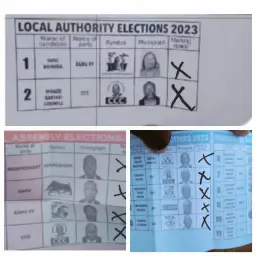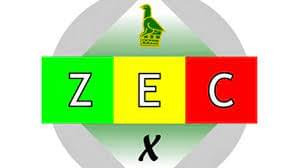Leading political analyst Professor Jonathan Moyo has advised the opposition to request the polling station-based voters’ roll from the Zimbabwe Electoral Commission (ZEC) as that is the official record used by the commission to conduct an election.
Despite the fact that ZEC can combine the national and constituency voter rolls, Prof Moyo said under Section 20 (4a) of the Electoral Act, these cannot be utilised for elections because they are administrative or academic instruments.
Prof Moyo said this while discussing the voters’ roll, and its evolution in the context of comparative practices at the Morning Asakhe Show hosted by CITE on the X platform on Monday.
“I have seen some discussion saying a national voters’ roll is very important but the polling station voters’ roll is extracted from the constituency, ward and national voters’ roll,” he said.
Prof Moyo advised having a ward consolidated voters’ roll, which includes the entire number of polling stations in a ward.
The national voters’ roll, he claims, is also useless to the voter, who, according to Section 67 of Zimbabwe’s Constitution, is the most important person in an election, whereas the polling station voters’ roll was created for the voter’s convenience.
“Attention on the polling station voters’ roll is on the voter, as the voters’ roll is now decentralised to the village in rural areas and to the streets in urban areas unlike the constituency voters’ roll which has huge numbers,” Prof Moyo explained.
According to the scientist, contrary to common belief, a voter’s roll was not more important than the election itself but the materialisation of political rights.
“The right to vote fueled the liberation struggle,” Prof Moyo said as he unpacked the political rights of people to be able to vote and enjoy that right.
“A voters roll is not an election,” he added, but an administrative instrument for giving effect to the right to vote.
Prof Moyo remarked that in 1980, Zimbabweans voted in an election without the voters’ roll.
“Zimbabwe’s first election was historic and most significant because it was held without a voters’ roll for the indigenous population/Black majority. We fought for it, won it and enjoyed that right without a voters’ roll,” he said.
In 1980, Blacks voted for the 80 common roll seats in Parliament allotted for them, while Whites voted for the 20 special roll seats.
At that time, Prof Moyo stated Blacks demonstrated citizenship by voting with national ID cards.
“This is a story that needs to be told and celebrated, as we often don’t reflect on historic experiences. We had a great historic start, organising and running an election in 1980 without a voters roll,” he said.
At that time, Prof Moyo stated Blacks demonstrated citizenship by voting with national ID cards.
“This is a story that needs to be told and celebrated, as we often don’t reflect on historic experiences. We had a great historic start, organising and running an election in 1980 without a voters roll,” he said.
However, in 1985, Zimbabwe ‘copied’ what was happening in other independent African countries by adopting what Prof Moyo described as a “colonial electoral system based on winner-take-all, first-past-the-post constituency elections.”
“The 80 seats in Parliament became 80 constituencies and the worst that happened fueled by one party sentiment of the day was the introduction of the constituency-based voters’ roll that came with qualifications, which excluded Blacks,” he said.
Prof Moyo declared the constituency-based voters’ roll had been perfected in 1990, when the bicameral house, special white seats were abolished and replaced with a new unicameral house with 150 members, 120 from constituencies, 80 governors, 10 chiefs, and 12 non-constituency MPs appointed by the president.
“Under this constituency-based voters’ roll which started in 1985 and found greater expression in 1990, three problems arose that led to where we are today,” said Prof Moyo.
The constituency-based voters’ roll caused three problems: it allowed multiple voting because constituencies had many polling places with identical copy of the voters’ roll for residents in that constituency.
This meant that a person might vote again at a different polling site.
Two, the constituency-based voters’ roll enabled the development of ghost polling stations, where ghost voting by ghost voters at a false polling station allowed for ballot stuffing and rigging.
Three, which Prof Moyo described as a “persistent and very serious problem,” was the then-Registrar-General, Tobaiwa Mudede, was accused of creating methods of manipulating the voters’ roll to benefit Zanu PF.
These concerns, according to Prof Moyo, became a focal point between Zanu PF and the MDC during the 2007 SADC Thabo Mbeki-mediated reform discussions, which resulted in one of the first substantial reforms ahead of the 2008 election.
Zimbabwe removed the use of constituency voters’ rolls for election purposes by legislation and replaced them with ward voters’ rolls, however, the 2008 election was inconclusive.
However, according to the scientist, the ward-based voter roll did not solve the three difficulties outlined above.
“Fortunately after the 2008 election, there was the Global Political Agreement GPA), where the MDC in its two formations (MDCT and MDC) defeated the ruling and won Parliament for the first time.
The Government of National Unity (GNU) produced a new constitution under COPAC where the ward-based voters’ roll was abolished, which had lived for one term in favour of a polling station-based voters roll,” Prof Moyo said.
“The polling station-based voters roll only had your name only at one polling station which was a significant and important development, one that is progressive and should be celebrated as a major achievement but must be perfected.” CITE










